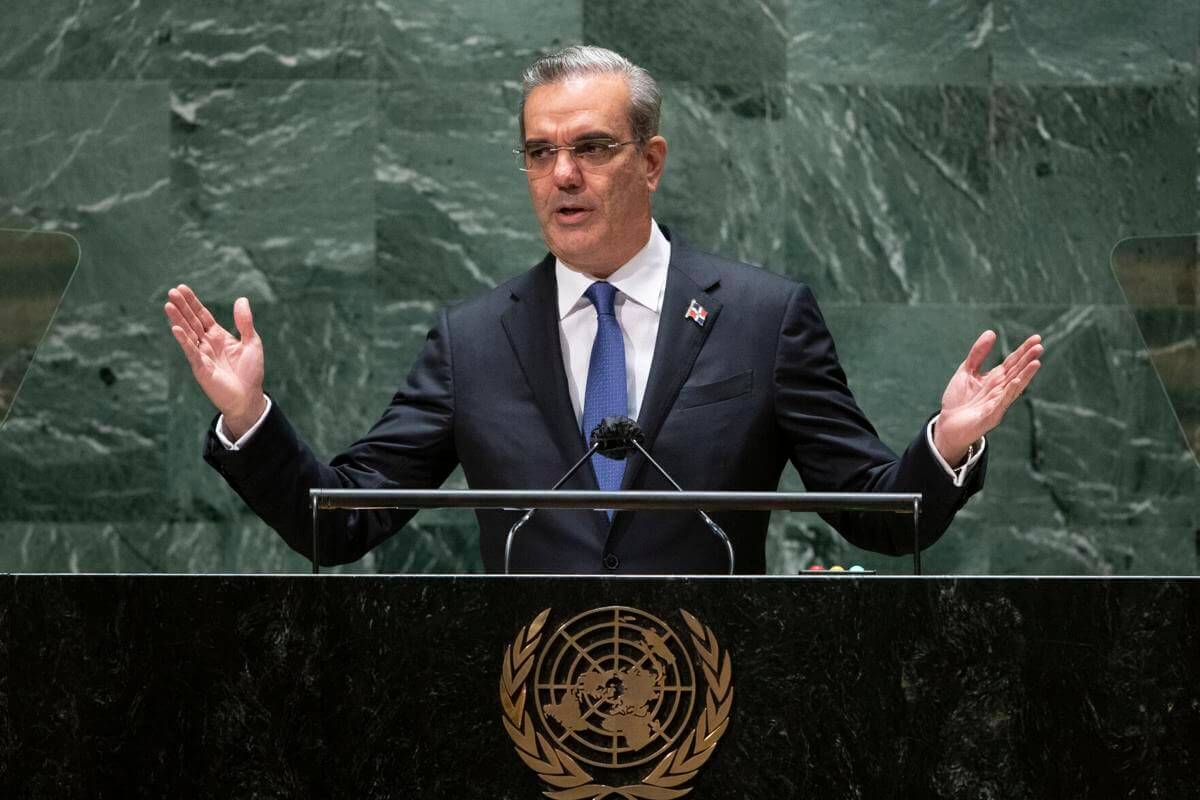Uruguay
On Wednesday, President Luis Lacalle Pou virtually addressed the 76th session of the United Nations General Assembly (UNGA) in New York. He began his speech by highlighting how the pandemic has laid bare the inequities of the world in terms of how the varying levels of freedom enjoyed by citizens across the globe is correlated with the divergent economic clout of countries. Nevertheless, Lacalle Pou conceded that there is also a need for those same citizens to self-govern and choose the best and safest courses of action without government intervention.
The Uruguayan leader celebrated how COVID-19 vaccines were developed in “record time” and outlined how he didn’t intend to speak about patent waivers but about the inequitable access to those vaccines.
He also spoke about the need to address the issue of how the countries who are against non-intervention in their internal affairs are also the same countries who are committing human rights abuses within their borders. To this end, he said that while it is important to respect sovereignty, such abuses against rights and freedoms cannot go ignored. This was possibly a reference to Cuba, Nicaragua, and Venezuela, given that Uruguay recently spoke out against these countries at a summit of the Community of Latin American and Caribbean States. Keeping this in mind, he declared, “Now it’s time for action and practice.”
- SUMMARY: DRC President Félix Tshisekedi’s UNGA Address
- SUMMARY: UNGA Addresses by the Leaders of Zambia, CAR, and Rwanda
- SUMMARY: UNGA Addresses by the Leaders of Madagascar, Ghana, Sierra Leone, and Kenya
- SUMMARY: UNGA Addresses by the Leaders of Malawi, Djibouti, Togo, and Guinea-Bissau
- SUMMARY: UNGA Addresses by the Leaders of Brazil, Colombia, and Chile
- SUMMARY: UNGA Addresses by the Leaders of Ecuador, Argentina, Costa Rica, and Peru
- SUMMARY: UNGA Addresses by the Leaders of Venezuela, Guatemala, and Honduras
- SUMMARY: UNGA Addresses by the Leaders of China, South Korea, and the Philippines
- SUMMARY: US President Joe Biden’s UNGA Address
- SUMMARY: UNGA Addresses by the Leaders of Iran, Turkey, Qatar, Egypt, and Somalia
- SUMMARY: UNGA Addresses by the Leaders of Saudi Arabia and Jordan
Dominican Republic
President Luis Abinader said there is a need for renewed and strengthened multilateralism to confront the pandemic, climate change, the technological revolution, and the “need to design a new paradigm for the welfare state.” This transition, he said, which will facilitate the achievement of sustainable development goals, must be grounded in human rights and the rule of law.
Abinader celebrated how 57% of eligible Dominicans are fully vaccinated, 70% have received at least one dose, and 10% have received a third shot. The Dominican Republic has also donated around 820,000 doses to regional partners, he noted.
Speaking on the economic impact of the pandemic, he said there is a need for concessional financing for low- and middle-income countries to overcome their liquidity crises. Abinader welcomed the $650 billion in special drawing rights allocated by the International Monetary Fund, but said this amount is insufficient given that much of these funds are reserved for developed countries who “need them the least.” He thus said that these funds should be re-allocated to poorer countries.
He then called for a “global transformation of the global economy” to adapt to the challenges generated by climate change and said that the countries who pollute the most must be forced to pay for this disproportionality, given that those who pollute least are most vulnerable to the effects of climate change. He also said that developing countries should be granted access to credit facilities at “preferential rates” so as to incentivise climate action.
Furthermore, Abinader spoke about the political crisis in Haiti following the assassination of President Jovenel Moïse and subsequent reports of PM Ariel Henry’s complicity. Given that Dominican Republic and Haiti are bordering countries, Abinader expressed concern about the Haitian crisis spilling over into his country. He said unilateral action will be “insufficient,” and urged for international support in confronting the divisions in the Haitian leadership and the increasing prominence of gangs in the country.
Suriname
President Chandrikapersad Santokhi began his speech by saying that the ongoing pandemic has underlined how “when in crisis, seemingly international solidarity has little or no meaning,” wherein countries adopt a more ‘individual’ approach. Nevertheless, he welcomed the support Suriname has received from Netherlands, India, China, and the United States during these trying times.
He then moved on to the need to harness science and technology for peaceful purposes and called for vaccine equity and access to “concessional financing” to alleviate the debt burden of developing countries.
Santokhi also talked about the “serious challenge and existential threat” of climate change, and said Suriname remains committed to mitigating the impacts of it despite the fact that it has so minimally contributed to the current crisis. Looking ahead to the COP26 summit in Glasgow, he said, “Noble ideals with strong political commitments do not mean much if not supported with new financial resources,” and thus called for “actionable commitments” to support a transition to a green economy.

